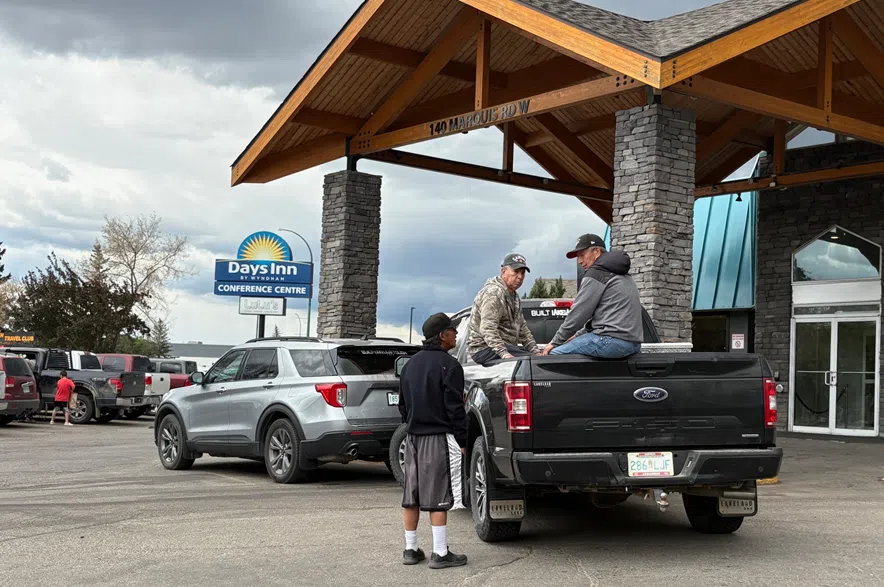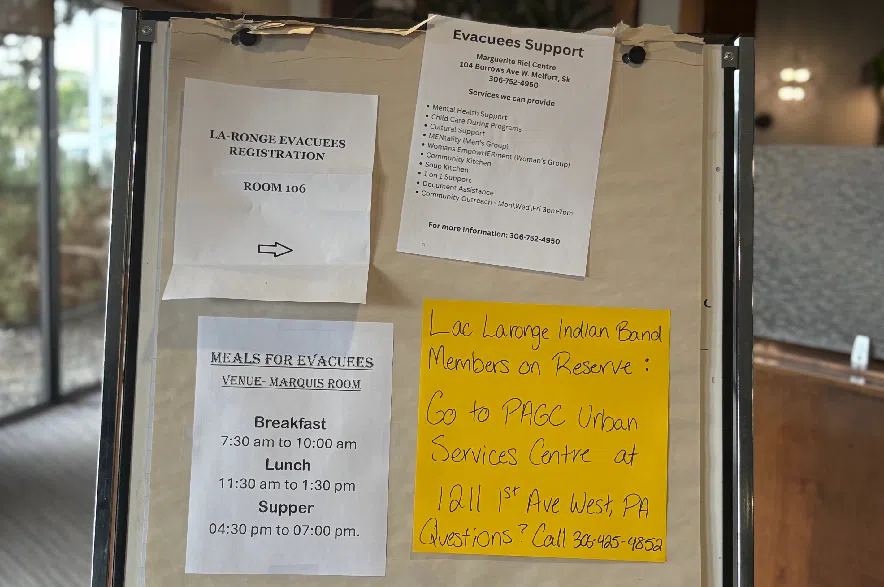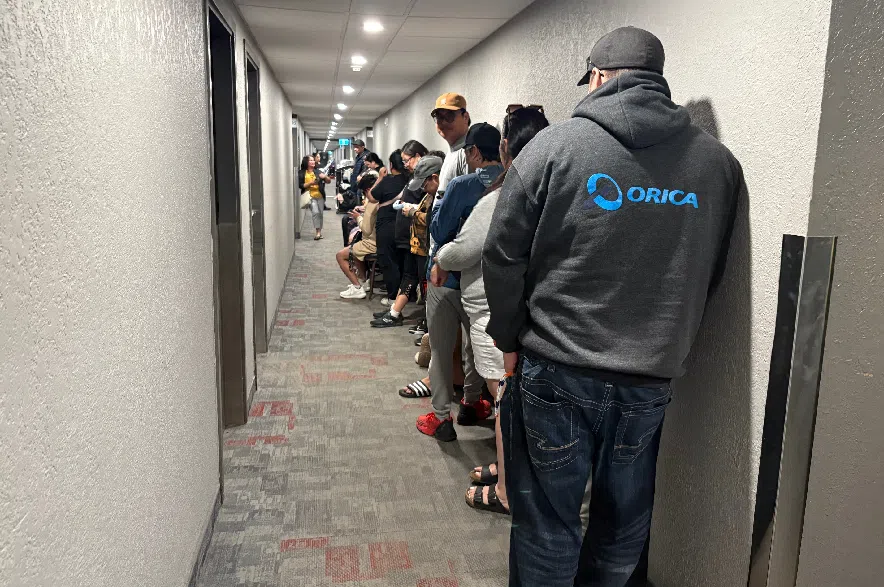As the sun dipped below the treeline on Sunday evening, a slow-moving convoy snaked its way south from La Ronge, headlights piercing the thick, acrid smoke.
It was a mass exodus driven by desperation — a wildfire known as the Pisew fire had breached the town’s airport, forcing thousands to evacuate with only hours’ notice.
Sharon, a La Ronge resident of 40 years, was one of them.
“We were able to leave La Ronge about six p.m., and there was a long line of traffic moving slowly,” she said. “There was fire on both sides of the roads, most of the part and heavy smoke in lots of areas.”
Read More:
- ‘We’re not finished yet. There’s no rain in sight,’ Premier Moe on wildfires
- Rhonda Blackmore removed as commanding officer of Saskatchewan RCMP
- Sask. has 20 active wildfires, 33 communities evacuated
The fire had come fast, pushed by unpredictable winds. Emergency alerts sent residents scrambling to pack their essentials — medications, documents, pets — and flee through a corridor of flames.
The drive to Prince Albert, which normally takes around four hours, stretched to over seven.
“We got to Prince Albert about one in the morning,” Sharon said, exhausted from the long, smoke-filled drive. “Even if you close your car, smoke still gets in.”

Evacuees from northern Saskatchewan are staying in Prince Albert after wildfires forced them to leave their homes. (Mia Holowaychuk/650 CKOM)
When asked what she managed to bring with her, she answered simply, “We took what we thought was essential, and the rest… if it goes, it goes.”
Sharon’s story is one among thousands. According to the Saskatchewan Public Safety Agency, more than 10,000 people have been forced from their homes by wildfires so far this season.
In cities like Prince Albert, residents and officials have opened their arms — offering shelter, supplies and comfort amid one of the province’s worst wildfire seasons in recent memory.
“Pray for the best, prepare for the worst”
Jackson Charles had already fled from Hall Lake, about 100 kilometres northwest of La Ronge, weeks before.
“I feel displaced. Yeah… feel lost,” he said simply.
A trained firefighter, Charles wrestled with the guilt of not being on the front lines. “I feel like I should be helping out,” he said, “but my honey is pregnant, and my father-in-law is on his deathbed. That’s why I’m here.”
For him, the choice was between service and family — and for now, he’s chosen the latter. “After that, then I’ll go firefighting,” he said. “Pray for the best and prepare for the worst, I guess.”
A chaotic departure
For Jim Hyrniuk, another La Ronge resident, the reality of the fire hit hard on Sunday.
“Yesterday was a crazy day,” he recalled. “I woke up, looked outside — this fire is pretty crazy, and it’s coming.”
By mid-afternoon, word spread that an evacuation order was imminent. “Next thing you know, it’s five o’clock and they said, ‘Get out of town.’ An hour later, the airport was on fire, and we were stuck in traffic.”
The jam stretched for hours. “There was a big fire in front of us. A lot of people turned around — they were told not to, but it scared a lot of people.”
Hyrniuk grabbed only his dog and a change of clothes and drove through smoke and fear to escape.
Now in Prince Albert, he’s grateful for the help. “They’re doing a fine job,” he said of the emergency workers.

The Prince Albert Days Inn is taking in wildfire evacuees. (Mia Holowaychuk/650 CKOM)
A province on fire
The Pisew fire — the one that forced so many out of La Ronge — is still burning and has already scorched more than 50,000 hectares. That’s over twice the size of Saskatoon. And it’s just one of more than a dozen major fires burning across the province right now.
There are more than 1,300 people on the ground trying to fight the flames, including local crews, the military and firefighters from other provinces.
Many evacuees in Prince Albert don’t know when — or if — they’ll return home. Some, like Sharon, are clinging to hope.
“I’m hoping everybody’s safe,” she said. “We’ll see how many people lost their homes… Everybody pray for rain.”
— with files from 650 CKOM’s Mia Holowaychuk











